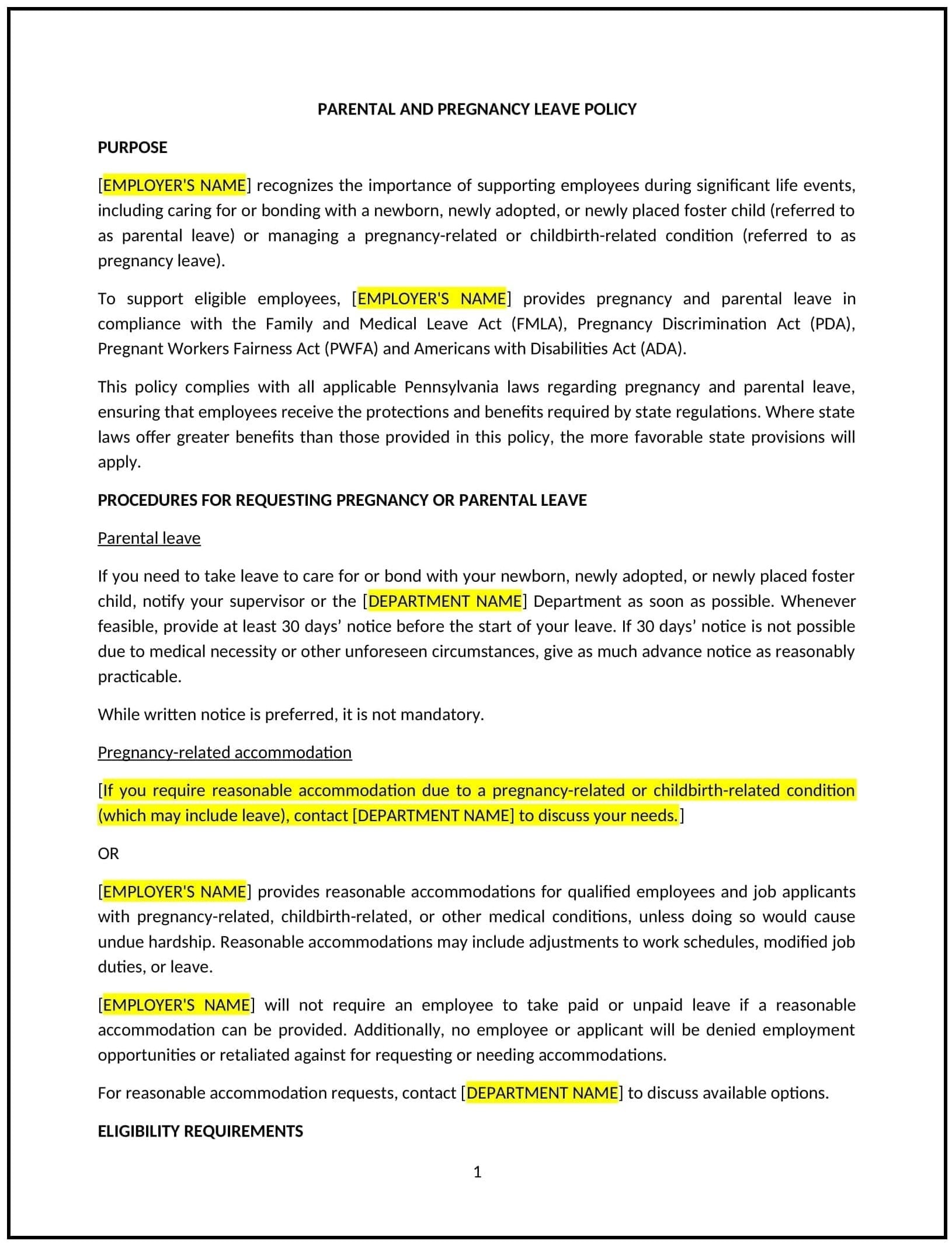Parental and pregnancy leave policy (Pennsylvania): Free template
Got contracts to review? While you're here for policies, let Cobrief make contract review effortless—start your free review now.

Customize this template for free
Parental and pregnancy leave policy (Pennsylvania)
This parental and pregnancy leave policy is designed to help businesses in Pennsylvania provide clear guidelines for employees needing time off for pregnancy, childbirth, adoption, or fostering. By outlining eligibility, leave entitlements, and employee rights, this template supports compliance with federal regulations such as the Family and Medical Leave Act (FMLA) and Pennsylvania-specific labor laws.
By using this template, businesses can support employee well-being, promote work-life balance, and maintain a positive workplace culture.
How to use this parental and pregnancy leave policy (Pennsylvania)
- Define eligibility: Clearly specify which employees qualify for parental or pregnancy leave, such as full-time employees with a certain length of service.
- Address leave types: Include details about the types of leave available, such as maternity leave, paternity leave, or adoption leave, and their durations.
- Outline application procedures: Provide steps for requesting leave, including advance notice, required documentation, and timelines for submission.
- Include job protection: Highlight employees’ rights to return to the same or an equivalent position after their leave, in compliance with FMLA and Pennsylvania regulations.
- Reflect Pennsylvania-specific considerations: Tailor the policy to address local labor protections, such as requirements for reasonable accommodations during pregnancy.
Benefits of using a parental and pregnancy leave policy (Pennsylvania)
A well-structured parental and pregnancy leave policy supports compliance and employee satisfaction. Here's how it helps:
- Promotes work-life balance: Enables employees to care for their families while maintaining job security.
- Supports compliance: Aligns with FMLA and Pennsylvania labor laws, reducing legal risks.
- Enhances employee retention: Demonstrates a commitment to employee well-being, fostering loyalty and engagement.
- Encourages transparency: Provides clear guidelines for leave requests, minimizing misunderstandings.
- Reflects local needs: Addresses Pennsylvania’s workforce and legal landscape, including pregnancy-related accommodations and protections.
Tips for using a parental and pregnancy leave policy (Pennsylvania)
- Communicate the policy: Share the policy with employees during onboarding and ensure it is accessible for future reference.
- Provide training: Educate managers and HR on handling leave requests and accommodating employees during pregnancy or parental leave.
- Maintain records: Keep detailed documentation of leave requests and accommodations to ensure compliance and transparency.
- Offer flexibility: Consider additional support, such as extending leave options or providing phased returns to work, to meet employees’ needs.
- Review periodically: Update the policy to reflect changes in Pennsylvania laws, federal regulations, or workplace trends.